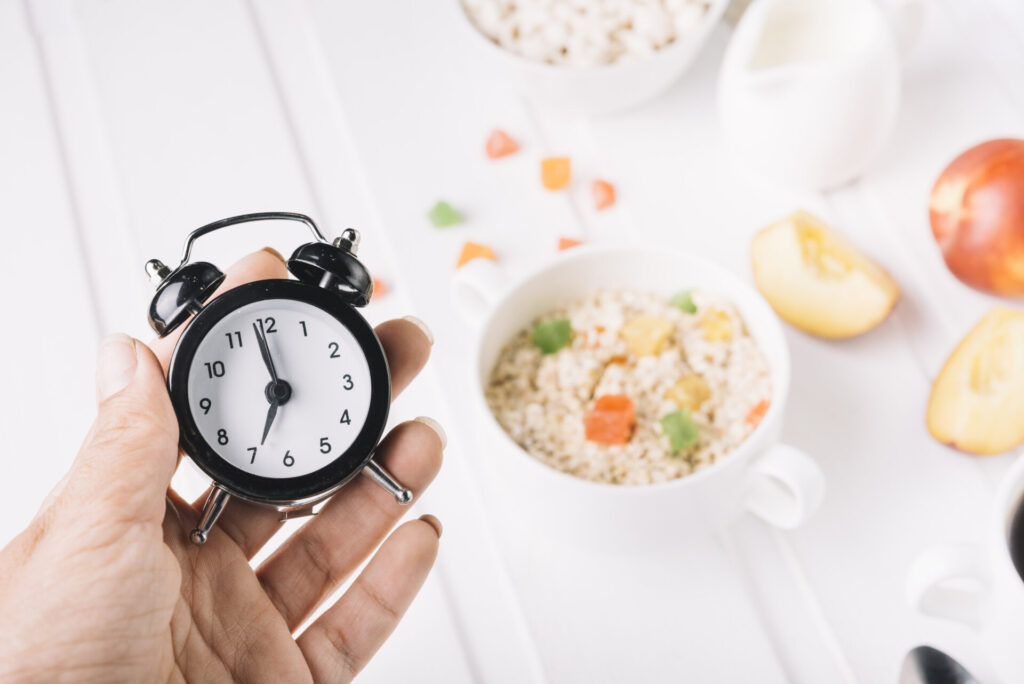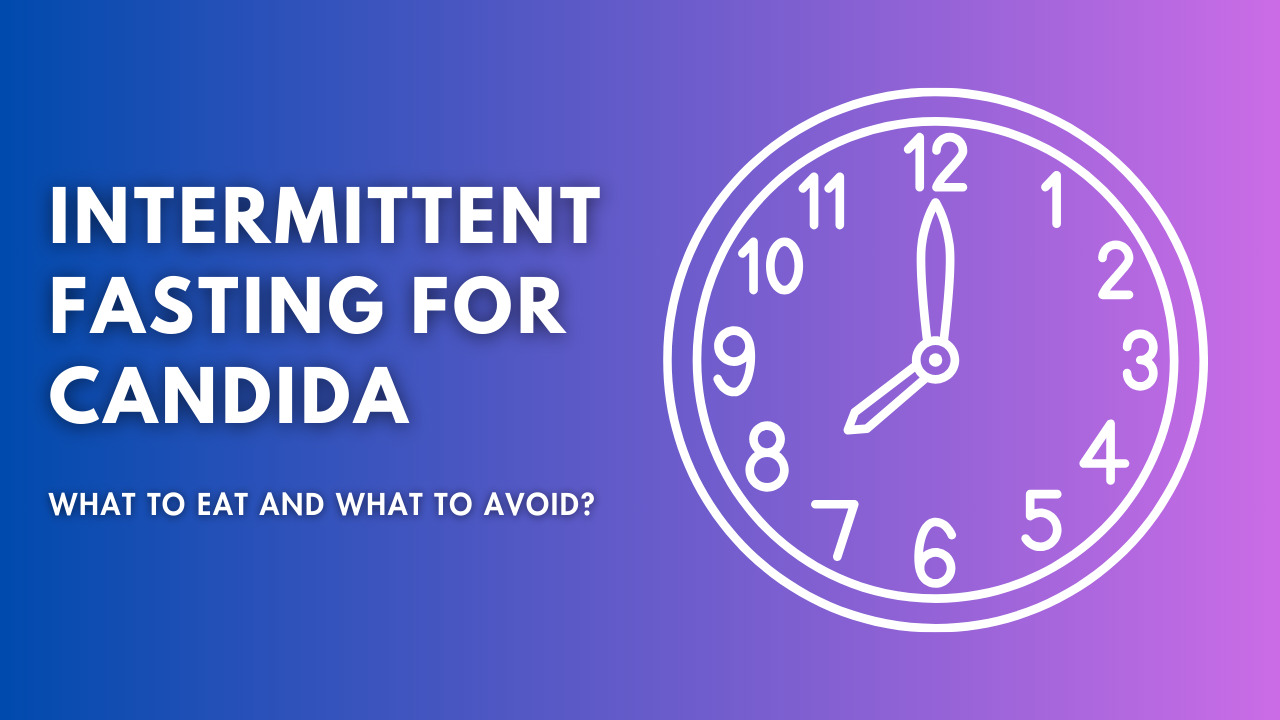Learn how intermittent fasting can help you fight candida and what foods to eat and avoid. Read this detailed article and get healthy tips.
Introduction
If you’ve ever had a yeast infection, you know how irritating and uncomfortable it can be. You might have felt things like itching, burning, discharge, or pain in your mouth, throat, vagina, or gut.
These are signs that candida overgrowth might be happening. This is when this fungus called candida albicans starts growing like crazy in your body.
What is Candida?
Candida is a fungus infection. Normally, a little bit of candida is present in your body. It’s actually pretty helpful for digestion and soaking up nutrients. But when your immune system isn’t at its best or your gut isn’t balanced, candida can give you infections.
This can happen for lots of reasons, like taking antibiotics, feeling stressed, dealing with hormone changes, eating not-so-great food, or having ongoing health problems.
If you’ve had too much candida, you might have been given antifungal medicines or supplements a try, but they gave you some side effects. Or maybe you tried a super strict diet that banned sugar, carbs, and processed stuff, but found it way too tough to stick with or just plain boring.
How to Deal With It Naturally
Don’t worry, I’ve got some great news to share! There’s a simple and natural way to cut down on candida growth and boost your health, and you don’t need any pills or supplements for it. It’s called intermittent fasting.

Intermittent fasting is a way of eating that switches back and forth between fasting (not eating) and eating. It can help you drop some pounds, keep your hormones in check, make your immune system stronger, and give your cells a healthy boost. Plus, it’s a way to starve candida and stop it from taking over your body.
In this article, I’ll break down which foods you should eat and which ones to skip when you’re doing intermittent fasting to get the best results and keep candida at bay. I’ll also share some tips on how to do intermittent fasting for candida safely and make it work for you.
What To Eat During Your Eating Windows
When you’re trying intermittent fasting for candida, it’s all about keeping your diet healthy and balanced. You want to eat foods that are good for your body and keep you feeling full and energized while you’re doing this intermittent fasting.
The top picks for your eating windows are foods that don’t contain a ton of sugar, refined carbs, or processed junk. These things can just make candida happy and make your symptoms worse. So, stay away from things like bread, pasta, rice, cereal, cookies, cakes, candy, soda, juice, and alcohol.
Instead, you can go for foods that are loaded with protein, healthy fats, fibre, and antioxidants. They’ll help you stay full, keep your blood sugar steady, improve your digestion, and fight off inflammation and stress.
So, think about eating foods like eggs, fish, chicken, nuts, seeds, avocados, olive oil, coconut oil, berries, leafy greens, broccoli, cauliflower, garlic, onions, ginger, turmeric, apple cider vinegar, yoghurt, kefir etc.

Food Suggestions
Here are some meal ideas for when it’s time to eat:
Breakfast
You can whip up some scrambled eggs with spinach and cheese, have Greek yoghurt with berries and nuts, or make an omelette with mushrooms and avocado.
Lunch
Try a chicken salad with lettuce and tomatoes, go for salmon with broccoli and quinoa, or wrap up some turkey with hummus and cucumber.
Snacks
If you need a little something in between, grab some almonds and dried cranberries, munch on celery sticks with peanut butter, or snack on cheese cubes and olives.
Dinner
For dinner, you could make a beef stir-fry with cauliflower rice and carrots, roast some chicken with green beans and sweet potato, or cook up a vegetable curry with coconut milk and chickpeas.
What To Avoid During Your Fasting Windows
When you’re into intermittent fasting for candida, it’s all about what you don’t eat or drink during your fasting times. It’s important to skip anything that has calories or makes your insulin jump up, as these can mess with your metabolism and hormones.
Stay away from foods that have got sugar, fake sweeteners, or alcohol. They’re invitations for candida and can increase inflammation and stress in your body.

You must avoid Caffeine as well. They can mess with your sleep and body clock, which are super important for your immune system and overall cell health.
So, what’s okay to have during fasting? Stick with water, plain tea, or black coffee. They’ll keep you hydrated, help you feel less hungry, and give your brain a boost.
Also Read – 3 Intermittent Fasting Mistakes and How to Fix Them
How Candida Overgrowth Can Affect Your Health And Well-Being
Candida overgrowth isn’t just a bother with annoying symptoms. It can actually cause serious health problems. Candida can harm the lining of your gut, leading to something called “leaky gut syndrome.”
That’s when toxins and unprocessed food bits sneak into your bloodstream, causing inflammation and making your immune system go haywire. This can bring on food intolerances, allergies, autoimmune diseases, or even cause mental disorders.
Now, here are some health issues that are often linked with candida overgrowth:
Irritable bowel syndrome (IBS)
Candida can mess with your digestive system, causing a condition called IBS. It brings on stuff like stomach pain, feeling bloated, passing gas, diarrhoea, or constipation. Candida just irritates your gut, making your IBS symptoms even worse.
Inflammatory bowel disease (IBD)
There are a bunch of diseases that cause inflammation and ulcers in your digestive tract, like Crohn’s disease or ulcerative colitis. Candida doesn’t help the situation at all. It can make these diseases, even worse by messing up your gut lining and making it leaky. That just means foods can sneak out where they shouldn’t and make your IBD symptoms worse.
Thyroid Disorders
There are these conditions that mess with your thyroid gland. Your thyroid manages your metabolism and hormones. Candida doesn’t play nice here either. It makes these things called antibodies that either stop or pretend to be your thyroid hormones, causing a whole lot of trouble.
Depression and Anxiety
These are mental disorders that mess with your feelings, thoughts, and how you act. Candida doesn’t help in this department either. It makes these bad toxins that interact with your brain chemicals like serotonin and dopamine, which control your mood. Plus, it can make your brain all inflamed, and disturb your thinking and how you handle your emotions.
These are just a few examples of how candida overgrowth affects your health. But there are plenty more issues that can come along with it, like chronic fatigue, fibromyalgia, skin problems, breathing trouble, diabetes, cancer, and the list goes on.
That’s why it’s smart to treat candida overgrowth as soon as possible and stop it from taking over. Intermittent fasting is the best way to do just that.
How To Do Intermittent Fasting For Candida Successfully
If you’re thinking about giving intermittent fasting for candida a try, here are the tips on how to do it right. Check out these tips and what you should be doing:
Choosing The Best Fasting Schedule
There are a bunch of ways to do intermittent fasting, and you can pick the one that fits your style. You could try the 16:8 plan, where you fast for 16 hours and eat during an 8-hour window each day. Or maybe the 5:2 plan, where you fast for two days and eat like usual for five days a week. Another option is to go with alternate-day fasting, where you fast every other day.
You’ve got the freedom to choose what suits your schedule and what you’re aiming for. Don’t be afraid to test out different plans and see what works best for you.
Prepare Your Meals and Snacks In Advance
When you’re into intermittent fasting for candida, keeping your diet healthy is key. You have to skip anything that feeds candida or messes with your fasting.
To make life simpler, get your meals and snacks ready ahead of time and store them in the fridge or freezer. This keeps you away from temptation and saves you both time and cash.
Stay Hydrated and Motivated
When you’re doing intermittent fasting for candida, you might feel hungry, get hit with cravings, or feel a bit tired during your fasting times. Don’t sweat it, though – it’s totally normal, and it gets easier as your body gets used to the new eating rhythm.
To handle these challenges, keep yourself hydrated and motivated. Drink lots of water, plain tea, or black coffee to stay hydrated and keep your hunger in check. If you need a distraction, listen to some music, read a book, meditate, or even do a little light exercise to keep your spirits up.
Break Your Fast Safely and Effectively
When you’re doing intermittent fasting for candida, how you break your fast, matters. You don’t want to go all out and eat junk food that’ll wreck your progress and give your digestion a hard time.
Instead, go for a light and small meal that’s easy on your stomach. Think foods with protein, good fats, fibre, and foods that are packed with antioxidants. So, foods like yoghurt, nuts, berries, eggs, avocados, salads, and soups are great choices. And here’s a tip: eat slowly and pay attention to what you’re eating. Stop when you’re feeling satisfied but not totally stuffed.

If you stick to these tips, you’ll nail the whole intermittent fasting for candida thing and enjoy this natural and effective way to tackle it.
Conclusion
Intermittent fasting for candida is a natural and effective way to cut down on candida and boost your health, all without pills or supplements. It’s like starving candida and keeping it from causing trouble in your body.
But to really make it work and avoid candida acting up, you’ve to eat right. Go for foods that are low on sugar, refined carbs, and junky processed foods, and eat lots of protein, good fats, fibre, and antioxidants.
And when you’re in your fasting time, don’t touch anything with calories, sugar, fake sweeteners, alcohol, or caffeine.
If you stick to these rules, you’ll see the benefits of intermittent fasting for candida and help your gut heal while improving your overall health.
And, if you’re ever unsure or have questions about doing this while you’re expecting (Pregnant), talk with your doctor. They’re the experts and can give you detailed guidance on taking care of yourself and your baby.
